Personal tools
News from ICTP 100 - Dateline

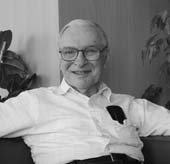
World renowned economic theorist Kenneth J. Arrow, Nobel Laureate in economics (1972) and professor emeritus at Stanford University (USA), has been appointed to the ICTP Scientific Council. He is the first member of the Council to be trained in economics and the social sciences. Arrow has used a variety of mathematical tools and models to examine the economics of information and organisation, collective decision-making and theories of justice, and ecological economics. The Nobel Prize, which he shared with Sir John Hicks, All Souls College, Oxford University, UK, was awarded for "pioneering contributions to general economic equilibrium theory and welfare theory." Arrow's diverse areas of expertise and unique applications of mathematics should prove particularly helpful to ICTP's new research fields, especially the recently launched ecological economics programme.
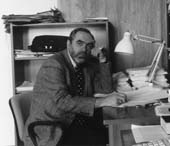
Vladimir Kravtsov has been appointed the new head of the
ICTP Condensed Matter Physics group. Kravtsov joined ICTP in 1993
as a visiting scientist and has remained with the Centre ever
since. He was made staff associate in 1995 (splitting his time
between ICTP and the Landau Institute for Theoretical Physics
in the Russian Federation) and a full-time staff member in 1998.
Earlier in his career, Kravtsov held posts as a research fellow
at the Institute of Spectroscopy in the Russian Federation and
the Humboldt Foundation and the University of Heidelberg in Germany.
He received his undergraduate and advanced degrees in physics
from the Moscow Institute of Physics and Technology. Kravtsov's
major fields of interest are disordered quantum systems and Anderson
localisation. He also served as a pioneer in the field of physics
of mesoscopic systems (see "Connected Clusters," News from ICTP,
Winter 2000, pp. 4-5). Kravtsov assumes the post from Yu Lu, long-time
head of the Condensed Matter Physics group, who has retired.
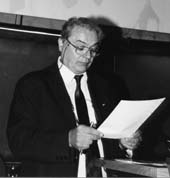
Erio Tosatti, professor of physics at the International
School for Advanced Studies (SISSA) and a long-time consultant
to ICTP's Condensed Matter Physics group, has been appointed ICTP
acting director. The six-month appointment is subject to renewal.
Tosatti takes on his temporary assignment from Miguel Virasoro
who retired on 31 May.
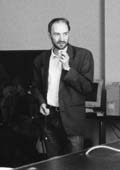
Franco Molteni, staff scientist with the ICTP Physics of Weather and Climate group, has received the Buchan Prize of the Royal Meteorological Society (RMS) for 2002. Molteni will share the prize with Roberto Buizza, researcher with the European Centre for Medium-Range Weather Forecasting, Reading, UK. The prize is awarded to RMS fellows who, in the past 5 years, have published articles in Quarterly Journal, The International Journal of Climatology or Atmospheric Science Letters that are deemed to be the most important and original contributions to the field. Molteni and Buizza's most noteworthy contributions have centered on the so-called ensemble prediction, a methodology that aims to quantify uncertainties in forecasts that are inherent in numerical simulations.
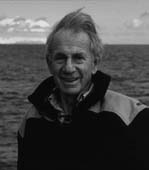
Walter Munk, one of the first scientists to be associated
with ICTP, has become the first-ever recipient of the Prince Albert
I Medal given by the International Association for the Physical
Sciences of the Oceans (IAPSO). IAPSO has recognised him "for
a half century of superb science and discoveries in physical oceanography."
Munk is currently professor of geophysics at the University of
California's (San Diego campus) Scripps Institution of Oceanography.
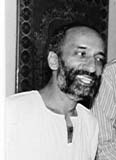
Sriram Ramaswamy, researcher at the Indian Institute of
Science in Bangalore and course director and lecturer of ICTP
condensed matter physics activities, has been awarded the Shanti
Swarup Bhatnagar prize in the physical sciences. The prize, instituted
by the Indian Council of Scientific and Industrial Research (CSIR)
in the name of its founder director general, is given annually
to Indian scientists under 45 years of age.

Sudeshna Sinha, former ICTP Regular Associate (1995-2000)
and postdoc in the Condensed Matter Physics group, has received
the B.M. Birla Science Award in physics. The prizes are given
by the B.M. Birla Science Centre in Hyderabad, India, to outstanding
Indian scientists under 40 years of age. Sinha is a researcher
at the Institute of Mathematical Sciences in Chennai, India.
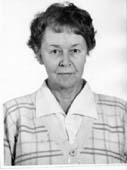
Tatyana Yanovskaya, physics professor at St. Petersburg
State University, Russian Federation, and collaborator with the
ICTP Structure and Non-linear Dynamics of the Earth (SAND) group
since 1990, has been awarded the Beno Gutenberg Medal by the European
Geophysical Society. The medal, which honours the memory of seismologist
Beno Gutenberg (long-time director of the California Institute
of Technology's seismology laboratory), is given to outstanding
seismologists. Yanovskaya is being recognised for developing "new
methods for solving the tomography problem" and for investigations
"of the Earth's lithosphere structure." Giuliano F.
Panza, head of the SAND group, had been awarded the Beno Gutenberg
Medal in 2000 (see "Dateline," News from ICTP, Spring
2000, p. 9).
ICTP has announced more than a dozen openings for scientists in the fields of condensed matter physics, high energy physics, mathematics and physics of weather and climate. The posts have been made possible as a result of increased funding from the Italian government. For further information, please see the ICTP home page www.ictp.it and click on Job Opportunities.
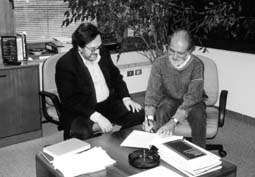
Miguel Virasoro and Luis Masperi
The Latin American Center of Physics (CLAF) in Rio de
Janeiro, Brazil, which celebrated its 40th anniversary on 22-27
March, recently renewed its memorandum of agreement with ICTP
for another five years. CLAF's activities have included support
for meetings and conferences, graduate programmes, regional research
collaborations, and the nurturing of institutional co-operation
across Latin America.
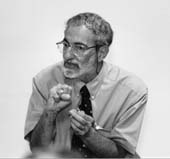
ICTP biophysicist Julian Chela-Flores, co-director of the Trieste conferences on chemical evolution, is the author of The New Science of Astrobiology, recently published by Kluwer Academic Publishers. The book covers a broad spectrum of topics at a level accessible to non-specialists. Issues include the origin of life in the universe, the formation of macromolecules on Earth, the possibility of biological evolution on Mars and Europa (Jupiter's moon), and philosophical implications associated with the search for extraterrestrial civilisations. The book is part of an international series devoted to the cellular origin of life and life in extreme habitats.

ICTP Regular Associate (1998-2003) Mohammed Musa Shabat has been appointed vice president for administrative affairs at the Islamic University in Gaza, Palestine. A condensed matter physicist by training, Shabat's major fields of interest include laser physics, computational physics and optoelectronics.

A paper by ICTP Senior Associate Edison Z. da Silva, "How
Do Gold Nanowires Break?" was featured on the cover of the
17 December issue of Physical Review Letters. Da Silva,
professor of physics at Universidade Estadual de Campinas
in Brazil, was appointed an ICTP Senior Associate in condensed
matter physics in 1998. His main fields of research are electronic
and structural properties of solids, molecular dynamics, superconductivity
and thermodynamic fluctuations.